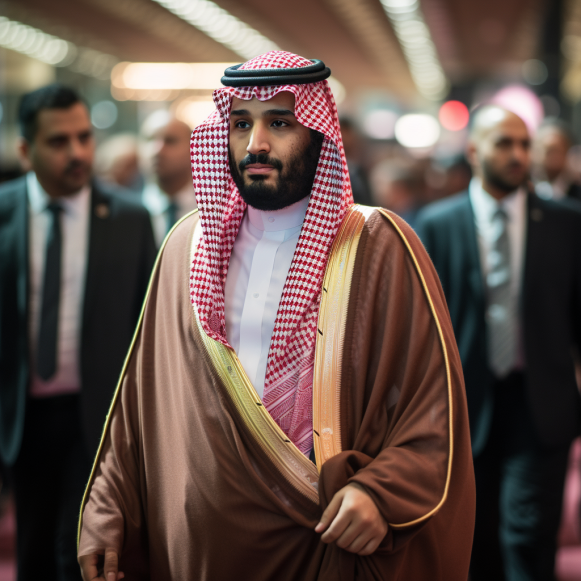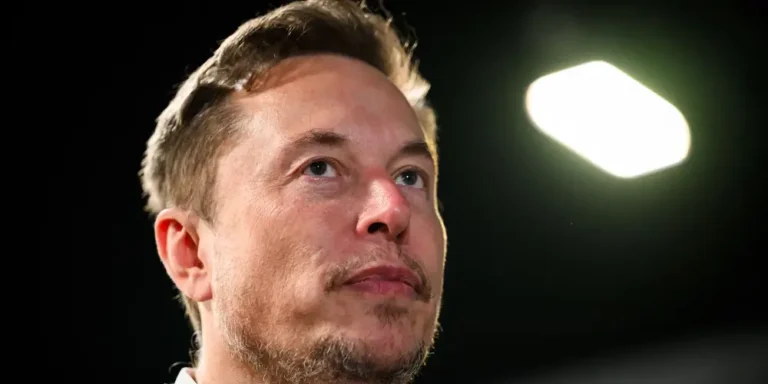9 top Middle Eastern investors, from sovereign funds to media giants, that are making big bets on US entertainment and sports

- Investors in Saudi Arabia, Qatar, and United Arab Emirates are pouring money into Western media and entertainment.
- LIV Golf, which is backed by the Saudi sovereign fund, announced it will merge with the PGA.
- Insider broke down the key Middle Eastern governments and funds and their leaders.
Sovereign funds and other entities from Saudi Arabia, Qatar, and the United Arab Emirates are investing millions in US media and entertainment, and there are plenty of takers.
This year, Peter Chernin and Providence Equity’s production roll-up The North Road received $150 million from Qatar’s main investment vehicle, and UAE-backed RedBird IMI, led by ex-CNN executive Jeff Zucker, made its first media move by investing in a new non-fiction studio, EverWonder.
However, attention has been drawn to Saudi Arabian investments in entertainment, tourism, and other industries in order to diversify its economy and position itself as a cultural reformer. Many stakeholders in the media industry who spoke with Insider this spring described the Saudis as disciplined and sophisticated investors who see entertainment as an economic accelerator. The Saudi regime also hopes to gain cultural capital by encouraging and promoting projects that portray the kingdom favorably to outsiders.
With the launch of LIV, a new pro league competing with the PGA that has weathered numerous controversies due to its Saudi connections, the country’s sovereign Public Investment Fund (PIF) shook the professional golf world in 2022. However, in June of this year, LIV Golf and the PGA agreed to merge and form a new combined entity supported by the PIF.
That funding would not have been so welcome five years ago, when the murder of Washington Post columnist Jamal Khashoggi, for which the US government blamed Saudi Crown Prince Mohammed bin Salman, sparked outrage. While other US companies cut ties with Saudi Arabia, Endeavor, the parent company of talent agency WME, the UFC, and other sports and media businesses, returned a $400 million investment to the Saudis. However, time has passed, and some other investment avenues have dried up.
Money flows from Saudi Arabia and other Middle Eastern countries are complicated. Along with sovereign wealth funds, there are numerous private sources, but the lines between public and private are frequently blurred. In the United Arab Emirates, for example, investment firm IMI is part of the Abu Dhabi Media Investment Corporation, whose owner is a member of Abu Dhabi’s ruling family and also has personal investments in sports.
Insider analyzed the key entities — their owners, leaders, and high-profile investments and joint ventures — in the top three Middle Eastern countries investing in US entertainment and media. Here’s a breakdown of who is spending money and who is benefiting from it.
Saudi Arabia
The PIF is the Public Investment Fund.
With $700 billion in assets, the PIF is Saudi Arabia’s sovereign wealth fund. It is led by Governor Yasir Al-Rumayyan, who is also the chairman of Saudi Aramco and the chairman of Newcastle United — the PIF led a $409 million purchase of the English football club in 2021, taking an 80% stake.
In 2020, the PIF paid $500 million for a nearly 6% stake in Live Nation, one of its US media and entertainment assets.
The MBC Group
The Saudi government owns at least 60% of MBC Group, a broadcasting conglomerate. It bills itself as the largest media company in the Middle East and North Africa, and it owns one of the most popular television news channels, Al Arabiya. The company also operates the general entertainment streaming service Shahid, which claims to have more subscribers in the region than Netflix.
According to a Variety interview, MBC signed a programming deal with Vice Media in January that could be worth $50 million over time, despite the fact that MBC has editorial control in the region.
Waleed bin Ibrahim Al Ibrahim, a Saudi businessman, is the founder and chairman of MBC Group. After stepping down as CEO in 2019, its Dubai-based CEO, Sam Barnett, returned to the company in 2020. MBC’s former managing director, Peter Smith, who was previously CEO of Cineflex Studios and NBCUniversal International president, stepped down in January and was replaced in February by Christina Wayne, a former Amazon, Cineflex, and AMC executive.
Saudi Research and Media Group (SRMG) is an acronym for Saudi Research and Media Group.
Player who is publicly traded SRMG is a large print and online magazine publisher with marketing operations. It has close ties to Mohammed bin Salman’s Saudi government. Its CEO is Jomana R. Al-Rashid, who is also the chairman of the Red Sea International Film Festival foundation, which is a co-producer of the Johnny Depp film “Jeanne du Barry,” which premiered at the Cannes International Film Festival and did well at the French box office, according to Variety.
Sharon Stone, Bruno Mars, and Luca Guadanigno performed at the second Red Sea festival in Jeddah in December, and a third edition is planned for November.
SRMG has invested in Penske Media Corporation, the publisher of Rolling Stone as well as Deadline, Variety, and other entertainment trade magazines, and Bloomberg Media has collaborated with SRMG on news network Asharq News, live events, and an Arabic version of streaming news service Quicktake.
WWE, founded by Vince McMahon, was one of the first US companies to organize unique events in Saudi Arabia. It has agreed to collaborate with the country’s General Entertainment Authority, chaired by Turki Al-Sheikh, through 2027 and has committed to a major annual event.
This year, SRMG expanded its presence at the Cannes Lions advertising festival by launching a corporate venture arm to invest in local entrepreneurs.
Fund for Cultural Development
Another Saudi investment source is the Cultural Development Fund, which was established in 2021 and announced in March the launch of its Film Sector Financing Program, which will provide $233 million to local and international companies that want to support the Saudi film sector. Mohammed bin Abdulrahman bin Dayel, the fund’s CEO, holds degrees from George Washington University and American University.
Qatar
Investment Authority of Qatar
The Qatar Investment Authority, or QIA, is the country’s main investment vehicle, with an estimated $475 billion in assets and is led by CEO Mansoor bin Ebrahim Al-Mahmoud. A $150 million growth capital infusion with Peter Chernin and Providence Equity’s production roll-up The North Road is among its investments.
Monumental Sports & Entertainment, which owns the NBA’s Washington Wizards, announced in July that the QIA would take a minority stake in the company, reportedly around 5%.
BeIN Media Group Inc.
BeIN Sports is a Qatari state-owned sports and entertainment network that broadcasts in the Middle East, Europe, the Americas, and other regions. It was founded in 2014 and is led by Nasser Al-Khelaifi, who is also the president of Paris Saint-Germain football club. BeIN purchased Miramax Films for an undisclosed sum in 2016, with plans to sell 49% of the company to ViacomCBS (now Paramount Global) in 2020.
Film Institute of Doha
The Doha Film Institute is dedicated to the growth of the Qatari film industry. H.E. Sheikha Al Mayassa bint Hamad bin Khalifa Al-Thani founded it in 2010, and it has supported independent films such as the animated drama “Loving Vincent” and Asghar Farhadi’s Oscar-winning “The Salesman.” According to The Hollywood Reporter, it struck a $100 million deal with Participant Media in 2013 to produce 12 or more films per year.
United Arab Emirates
Investment Authority of Abu Dhabi
The UAE has stepped up its efforts to become a welcoming media and entertainment hub for Western companies. Since 2008, the Abu Dhabi Investment Authority, a sovereign wealth fund with an estimated $853 billion in assets, has collaborated on projects with Hollywood studios. In addition, Dubai Studio City has hosted major productions such as “Star Trek Beyond” and “Mission Impossible: Ghost Protocol,” while Dubai Media City is home to National Geographic and BBC News.
Investments in International Media
International Media Investments (IMI) is a privately held investment firm that owns The National newspaper, CNN Business Arabic, and has stakes in Sky News Arabia and Euronews. It has a minority investment in JAF Communications, Jimmy Finkelstein’s company that owns news startup The Messenger; IMI was a backer of US explainer site Grid News, which JAF acquired in March and has now shuttered, according to Axios.
IMI has formed RedBird IMI with ex-CNN CEO Jeff Zucker and RedBird Capital Partners to invest in media and entertainment. In August, RedBird IMI made its first big entertainment move, launching EverWonder, a non-fiction programming studio led by ex-Time Studios head Ian Orefice. According to The New York Times, the venture has discussed taking a majority stake in Graydon Carter’s Air Mail, as well as investing in digital media startups Puck and Semafor and meeting with upstart Punchbowl News.
IMI is a subsidiary of the Abu Dhabi Media Investment Corporation, which is owned by Sheikh Mansour bin Zayed Al Nahyan, also known as Sheikh Mansour, a member of Abu Dhabi’s ruling family with significant personal investments in sports, most notably Manchester City of soccer. According to the Times, Sultan Ahmed Al Jaber, an Emirati government minister and the head of the Abu Dhabi National Oil Company, is a key figure who has taken the lead on many of IMI’s investment discussions in the United States.






